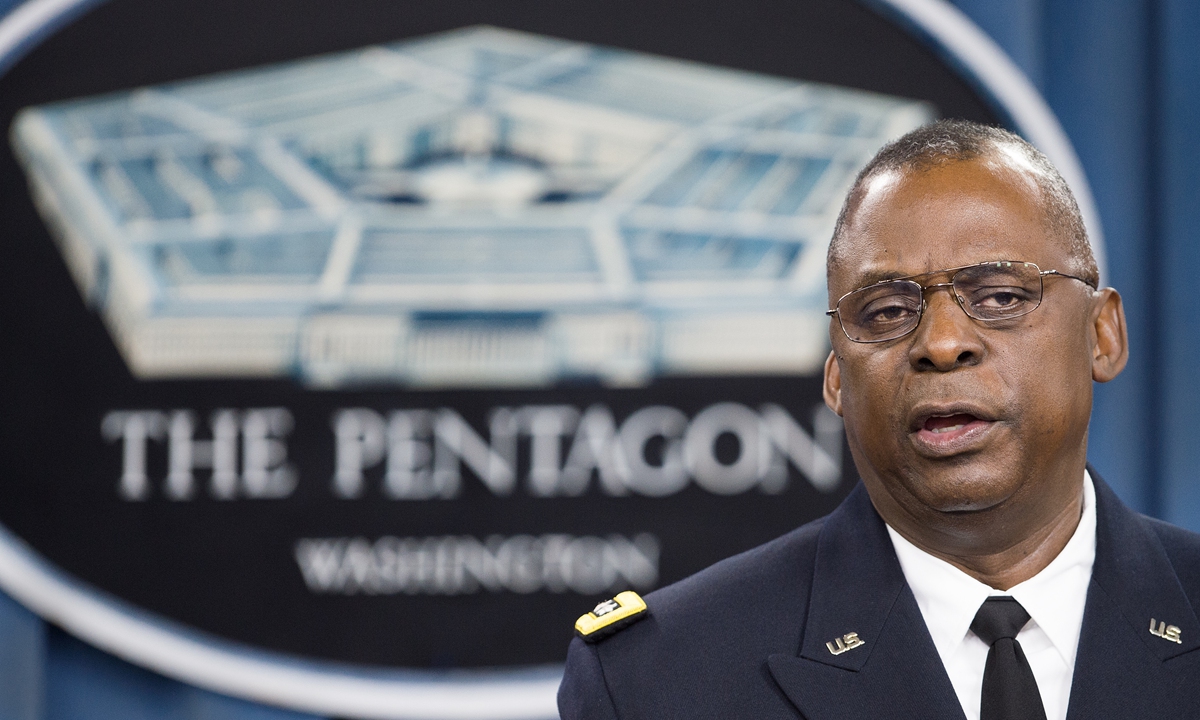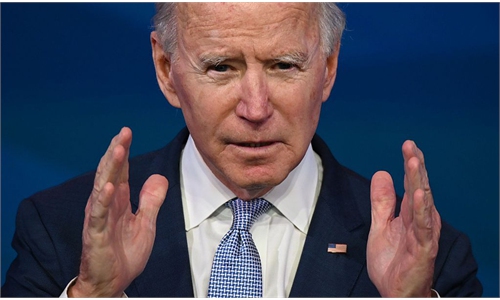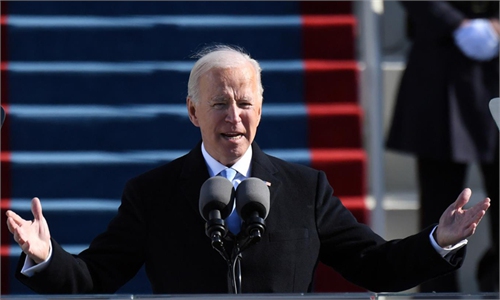Hard for US to integrate Japan, South Korea into a full military alliance

Lloyd Austin Photo: AFP
US Secretary of Defense Lloyd Austin held phone calls on Sunday with his Japanese and South Korean counterparts. He emphasized the importance of the alliances between the US and the two Asian countries respectively. Although Austin didn't name China in the calls, the US' intentions over China are self-evident.The Biden administration will likely continue to enhance military input in the Western Pacific region. But the cost will be beyond affordable for the US if it has to sustain the moves all by itself. Therefore, Washington hopes that Tokyo and Seoul can take a more active role to cooperate in this regard and become more aggressive. This will allow the US to take advantage of them to contain China. If so, Washington won't have to spend too much of its own cash.
Going forward with the new Biden team, the US will first of all fix the cracks between itself and the two Asian allies. During Donald Trump's tenure, both US-Japan and US-South Korea ties were affected mainly due to the Trump administration's demand to sharply increase Japan and South Korea's duties to host US troops. This friction is still not alleviated.
The US' goals now are to establish a trilateral or multilateral military alliance system with Washington at the center. This will permit it to further expand strategic blockades and military containments against its main rival in the Western Pacific region. Biden's military ideas will probably seek to use more of US allies' resources. This will see Washington urgently move to fix ties with Japan and South Korea and tighten their military bonds. The US may even concede in terms of amount of responsibilities to host US troops in exchange for the two countries' cooperation.
Washington is willing to see them develop deep-ocean offense abilities to cooperate with the US Navy to ensure it has a greater presence in the Western Pacific region. However, although US-Japan and US-South Korea military alliances will be enhanced, it will be impossible to integrate the two Asian countries into a complete military alliance system.
On the one hand, quarrels between Japan and South Korea are worsening. Neither of them will compromise over maritime territorial disputes. On the other hand, Japan and South Korea are reluctant to be fully controlled by the US. They both have their own strategic propositions. Therefore, the best-case scenario for the three countries to cooperate will be a trilateral collaboration with limited sphere of operations.
After all, Tokyo and Seoul wish to completely separate military concerns from economic affairs. Economically, they value China and its market and want to get closer to it.
In late 2020, Japan and South Korea agreed to make efforts to speed up negotiations on the China-Japan-South Korea free trade agreement. Analysts believe that the three regional countries will boost long-term stability and peaceful development in Northeast Asia through common prosperity.
Nonetheless, when it comes to the strategy and security spheres, neither Tokyo nor Seoul can get rid of Washington's control or their reliance on US military might. Due to historical reasons, the US has troops stationed in both countries, and influences their military policymaking. Unbinding these military ties cannot be unilaterally achieved unless Washington wills it. But this won't happen anytime soon. Therefore, the US-Japan and US-South Korea alliances will not see an end in the foreseeable future.
Washington won't change its containment policies against Beijing. But given the new US government's preference to convince its allies to go to the frontline, the US' fierce actions against China may simmer down. Hence, what the US promised to Japan regarding the East China Sea during Austin's call could be nothing more than simple lip service.
However, China must assure its own strategic space in the first place. It needs to constantly increase defense strength, respond forcefully against external provocations and interference, and strengthen its initiative in some surrounding areas - especially sensitive ones such as the Taiwan Straits and the South China Sea. China needs to create a friendlier and relatively stable external environment so that the US cannot find soil to easily sow discord.
The author is a Beijing-based military analyst. opinion@globaltimes.com.cn



